Research
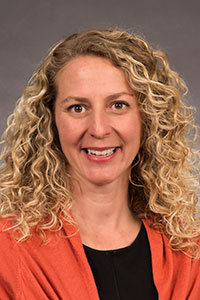
Kristina Blaiser, Ph.D., CCC-SLP
Professor
Office: Meridian Health Science Center, Room 808C
Twitter:@ISUHATCHlab
Facebook: https://www.facebook.com/HearInIdaho/
The Idaho State University HATCH (Helping Adults Talk to Children) Lab on the Meridian campus is under the direction of Kristina Blaiser, PhD CCC-SLP. The primary focus of the HATCH lab is to ensure that families have access to high quality intervention services regardless of their geographic location. The HATCH lab focuses on research related to early intervention and assessment practices with children who are deaf/hard-of-hearing. The lab focuses on systematic use of technology to facilitate adult learning such as integrating tele-intervention (TI) into the delivery of early intervention services such as using telehealth technology to optimize clinical outcomes. Since 2015, faculty and students (graduate and undergraduate) from the HATCH lab have received over $285,000 of external funding, been involved in six publications, and 28 international and national presentations.
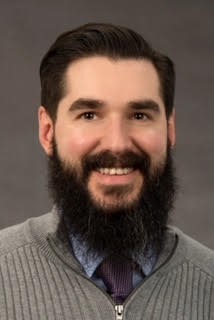
Kris L. Brock, Ph.D., CCC-SLP
Assistant Professor (AAC)
Office: Office: Meridian Health Sciences Center, Room 808D
Instagram: @AACCT_Lab
Facebook: https://www.facebook.com/groups/AACIdahoState/
Dr. Kris Brock directs the Idaho State University Assisting Adults and Children to Communicate using Technology (AACCT) Lab on the Meridian campus. Dr. Brock has extensive training with respect to cognitive psychology, human factors (the psychology, effectiveness, and efficiency of how humans interact within a system), and multimedia learning (e.g., animations). This training has prepared him combine these areas with AAC. Specifically, Dr. Brock has two lines of research investigating the effects of interface displays and symbol format across various communicative outcome measures in children with developmental disabilities and stroke survivors with nonfluent aphasia. The AAC child research line focuses on using animations to enhance communicative outcomes in children with developmental disabilities. Additionally, he indirectly investigates how technology-based AAC impacts the child’s working memory system. The AAC aphasia line focuses on the working memory resources required to communicate using an AAC system. Additionally, Dr. Brock enjoys adapting aphasia treatments to include AAC, because AAC is not a last resort therapy nor does it produce substandard outcomes when compared to natural speaking interventions.
Outside of AAC, Dr. Brock is working with colleagues to investigate pre-requisite course requirements for entry into a graduate Communication Sciences and Disorders (CSD) programs. His team is investigating the rationale behind why CSD programs across the nation have such variable pre-requisite course requirements.
Currently, Dr. Brock is writing several grants to provide funding for these studies and to pay student workers to assist with data collection. Since 2015, Dr. Brock has included over 25 students in his lab, which has resulted in several publications and conference presentations. At those conferences (e.g., ASHA), Dr. Brock has assisted students in developing 60- to 90-minute seminars as well as poster sessions. The AAC Lab has five publications with three under review (2018) and two more undergoing preparations for publication.
Dr. Brock is seeking dedicated students who are diligent academics that follow direction, critically think, and want to stand out from the crowd. Serious undergraduate students, who undergo training with Dr. Brock, will conduct research independently as part of the pre-professional development process. Finally, Dr. Brock is seeking Master’s level students to conduct thesis projects that will ultimately be submitted for publication in a peer-reviewed state, national, or international journal.
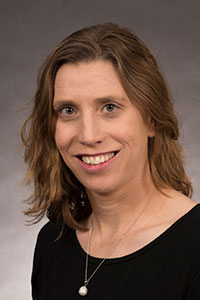
Alycia Cummings, Ph.D., CCC-SLP
Associate Professor
Office: Meridian Health Science Center
The Brain and Behavior Lab (BBLab) is a developmental neuropsycholinguistic research laboratory in the Department of Communication Sciences and Disorders at Idaho State University - Meridian. Our research focuses on the underlying mechanisms of developmental speech sound disorders and incorporates treatment techniques that can help remediate speech impairments. By recording brain activity (i.e., electroencephalogram or EEG), we are discovering how children with speech sound disorders perceive and produce speech sounds. Through our speech treatment programs, we are creating efficient and effective intervention methods. Our studies currently involve children between the ages of 3 and 7 years who are native speakers of English.
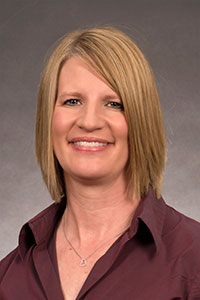
Amy Hardy, M.S., CCC-SLP
Clinical Professor
Online Director
Office: Meridian Health Science Center, Room 819H
Student Supervision, Pediatric Dysphagia, Language Disorders
As a Clinical Faculty member, Amy Hardy is currently working on providing therapists and caregivers objective ways to increase outcomes in pediatric feeding. Speech Language Pathologist must actively engage the client and caregiver and implement a positive learning and therapeutic environment to promote successful oral intake. In addition, Amy is working to improve outcomes in the clinical supervision process. Supervision is a vital aspect of our profession and requires an informative approach that is evidence based and models’ best practices. This project continues and is showing positive responses and improvements in the supervision process.
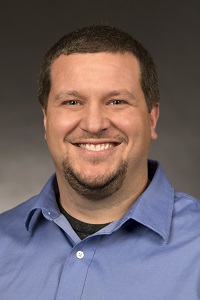
Daniel Hudock, Ph.D., CCC-SLP
Associate Professor
Founder of the Northwest Center for Fluency Disorders (NWCFD)
Office: Pocatello, SPA Building 68, Room 322
Dr. Hudock has two primary areas of research.
- First is a clinical and translational track investigating the functional (emotional, psychological, and social) impacts people who stutter (PWS) experience because of their communication disorder, including holistic approaches to stuttering therapy in collaboration with mental-health professionals.
- Second is the use of bio-psychophysiological measures (electro-dermal skin conductance response, heart-rate variability, and eye-tracking) to investigate sender-receiver dynamics during communication and high-density electroencephalography (EEG). With this, he specifically uses time-frequency analysis in EEGLab to examine the neural sensori-motor mu rhythm in speech perception and production of fluent and disfluent speakers.
Dr. Hudock is a person who stutters and understands that stuttering is much more than just how someone talks, but very often includes negative thoughts and feelings about themselves that has far reaching impacts. Due to his personal and professional experiences with stuttering he has founded the Northwest Center for Fluency Disorders. Dr. Hudock frequently has students involved in his projects at many levels, often presenting at state, regional, and national conferences (ASHA) as well as appearing as authors on many of his scholarly works.
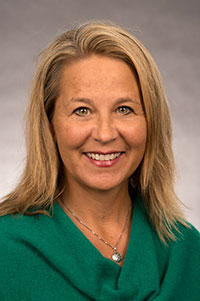
Wendy Morgan, M.S., CCC-SLP
Clinical Associate Professor
Clinical Coordinator, Pocatello Campus
Office: SPA Building 68, Room 222
As clinical faculty in Communication Science and Disorders, Wendy has presented locally and nationally on a variety of topics. Wendy incorporates clinical case studies from adult neurogenic clients as well as presenting established Interprofessional Education and Interprofessional Practice opportunities for students in Speech-Language Pathology. Wendy’s clinical research collaborates with graduate students and faculty in the department of Occupational Therapy and Audiology.
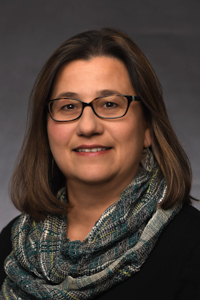
Diane Ogiela, Ph.D, CCC-SLP
Associate Professor
Office: Meridian Health Sciences Center, Room 808B
The Child Language and Developmental Neurolinguistics Lab in the Department of Communication Sciences and Disorders Department at Idaho State University-Meridian Health Science Center conducts research on language development and disorders in school-age children. Our research has two tracks. The first track focuses on examining the underlying mechanisms of morphosyntactic processing in children with Specific Language Impairment (SLI), a disorder that is characterized by significant language difficulties in the absence sensory or general cognitive disabilities. We use electroencephalography (EEG) to record and analyze brain activity during various language tasks in order to better understand how children with SLI process language in comparison to children and adults with typical language. Our second research track focuses on understanding the morphological, syntactic and semantic aspects of language that present challenges for children with SLI. Additionally, several student research projects have focused on evaluating language assessment practices with school-age children in order to provide adequate access to language intervention for children with SLI.
The Child Language and Developmental Neurolinguistics Lab is always eager to involve strong and engaged undergraduate and graduate students in a variety of projects (e.g., thesis, independent study, etc.). Many past students involved in the lab have co-authored and presented work at state, regional and national conferences such as the ISHA Convention, the ASHA Convention and the Symposium on Research in Child Language Disorders.
Families who would like to have their children participate in language studies should feel free to contact Dr. Ogiela or the lab at 208-373-1870 or email us at langlab@isu.edu.
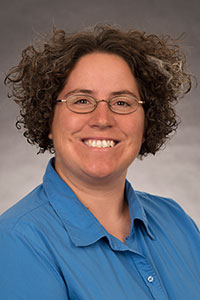
Heather L. Ramsdell, Ph.D., CCC-SLP, CALT, QI in Training
Associate Professor
Office: SPA Building 68, Room 330B
With doctoral education in child phonology, psycholinguistics, and bilingualism, and after 15 years researching infant vocal development, Dr. Heather L. Ramsdell recently shifted her clinical/research focus to dyslexia. In addition to being a certified speech-language pathologist (CCC-SLP), she is now also a certified academic language therapist (CALT; a dyslexia and multisensory structured language intervention specialist), and training to become a qualified instructor (QI) of CALTs. She hopes to bring CALT training to Idaho State University. Clinically, Dr. Ramsdell implements both Scottish Rite’s Take Flight and Orton-Gillingham literacy programs. Current research focus (with collaborators across the nation) includes multisensory structured language approaches to intervention, structured word inquiry, spelling, parent advocacy and parent self-efficacy related to children with dyslexia, and educator/pre-service educator (SLP, counselors, school psychologists, general and special education teachers, school administrators, etc.) confidence in, preparation to work with, and knowledge of dyslexia. Dr. Ramsdell is also actively involved at the ID State Department of Education, having recently participated on the work group that wrote the ID Dyslexia Handbook for Parents and Educators (K-12), and representing higher education and health-related professions on the Special Education Advisory Panel.
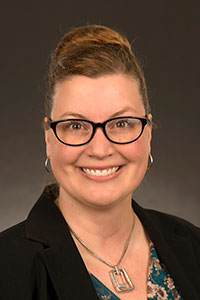
Victoria (Tori) Scharp, Ph.D., CCC-SLP
Associate Professor
Office: SPA Building 68, Room 314B
Current projects and initiatives:
-Sustainability factors including facilitators and barriers to Intensive Comprehensive Aphasia Programs (ICAP)
-Classifying gaps in the ICAPs evidence base
-Discourse outcomes following participation in ICAPs and modified ICAPs
-Humor instances in ICAP group therapy

